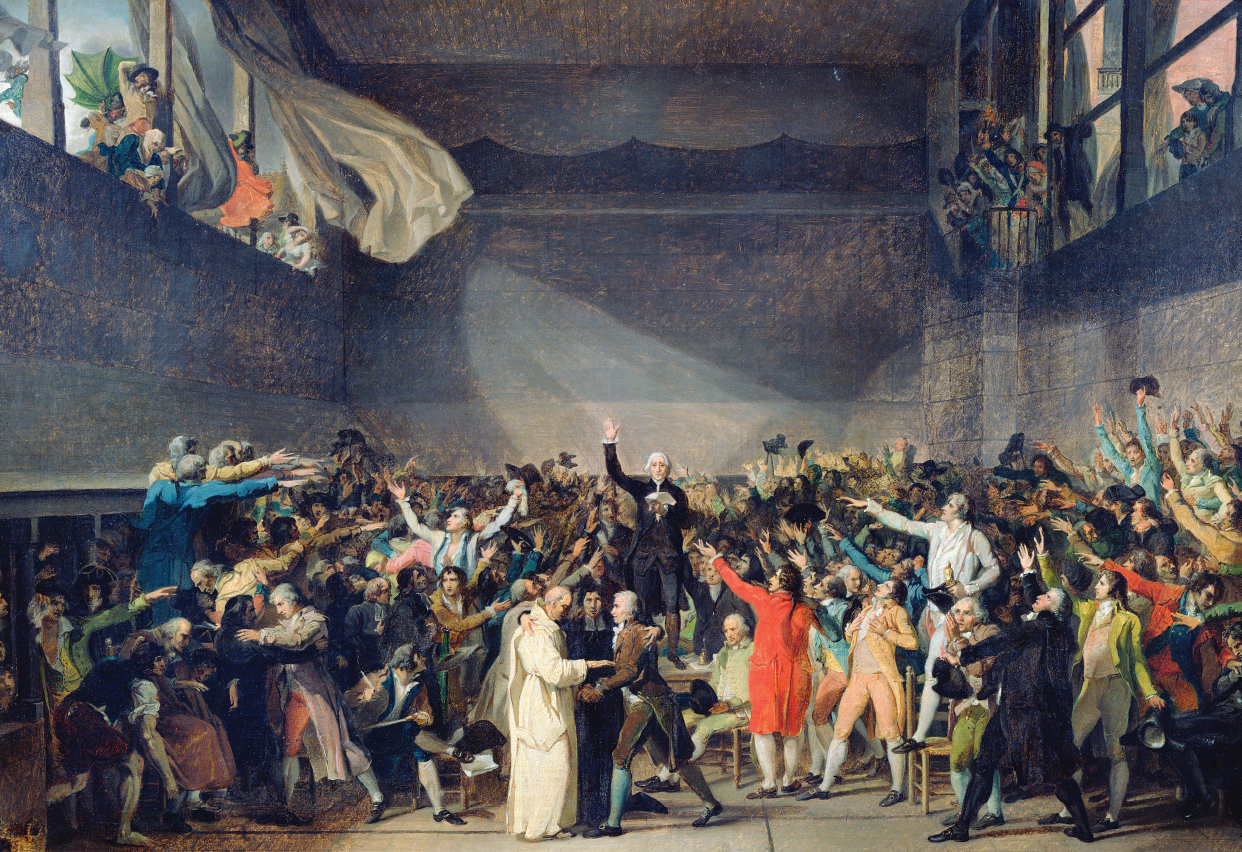The Formation of the National Assembly
Spurred by a depressed economy and falling tax receipts, Louis XVI’s minister of finance revived old proposals to impose a general tax on all landed property as well as to form provincial assemblies to help administer the tax, and he convinced the king to call an assembly of notables in 1787 to gain support for the idea. The assembled notables, mainly aristocrats and high-
Facing imminent bankruptcy, the king tried to reassert his authority. He dismissed the notables and established new taxes by decree. The judges of the Parlement of Paris promptly declared the royal initiative null and void. When the king tried to exile the judges, a tremendous wave of protest swept the country. Finally, in July 1788, a beaten Louis XVI bowed to public opinion and called for the Estates General. Absolute monarchy was collapsing.
Following centuries-
On May 5, 1789, the twelve hundred delegates of the three estates gathered in Versailles for the opening session of the Estates General. Despite widespread hopes for serious reform, the Estates General quickly deadlocked over the issue of voting procedures. Controversy had begun during the electoral process itself, when the government confirmed that, following precedent, each estate should meet and vote separately. During the lead-
In angry response, delegates of the third estate refused in June 1789 to meet until the king ordered the clergy and nobility to sit with them in a single body. On June 17, the third estate voted to call itself the National Assembly. On June 20, excluded from their hall because of “repairs,” the delegates moved to a large indoor tennis court where they swore the famous Tennis Court Oath, pledging not to disband until they had been recognized as a national assembly and had written a new constitution.

The king’s response was disastrously ambivalent. On June 23, he made a conciliatory speech urging reforms, and four days later he ordered the three estates to meet together. At the same time, Louis apparently followed the advice of relatives and court nobles who urged him to dissolve the Assembly by force. The king called an army of eighteen thousand troops toward the capital to bring the delegates under control, and on July 11, he dismissed his finance minister and other more liberal ministers. It appeared that the monarchy was prepared to use violence to restore its control.